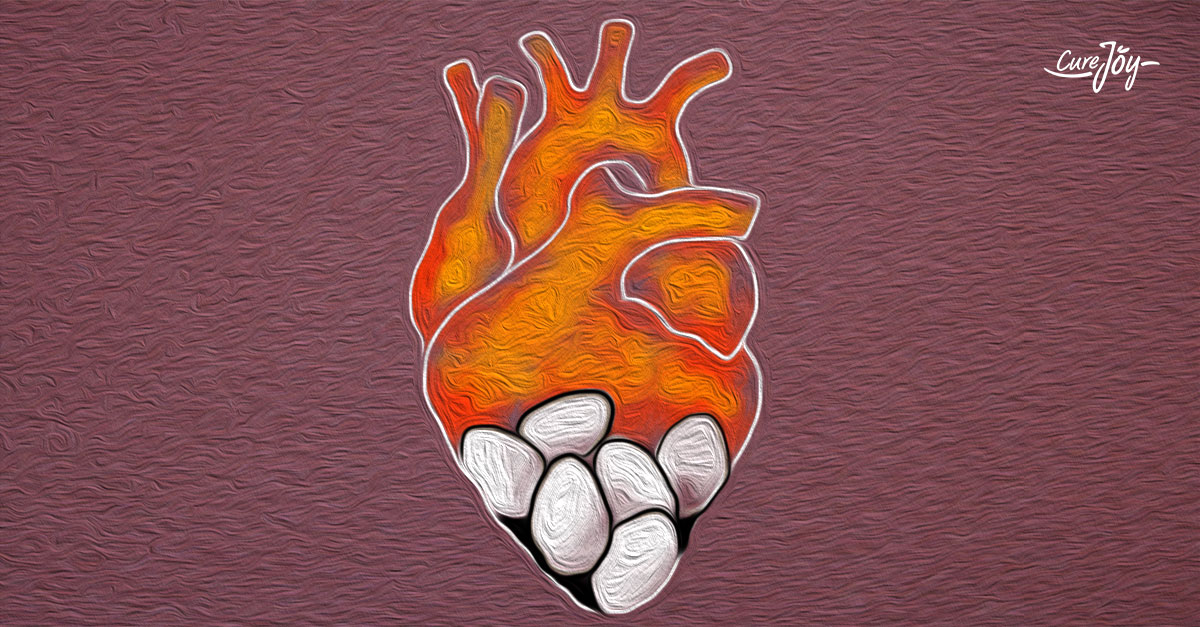Eggs are one of the most convenient and easy-to-make foods out there. With vitamins, minerals, and a protein punch to boot, there are loads of reasons to have an egg. But other concerns like cardiac problems and high cholesterol might require you to watch how many eggs you have a day. So what’s the number of eggs you could safely consume every week – and how much is too much?
What’s In An Egg?
The consumption of eggs as part of a balanced healthy diet is recommended by most health authorities. That’s because eggs are a good source of protein, vitamin D, vitamin A, vitamin B2 and B12, antioxidants like lutein and zeaxanthin that are good for vision, as well as iodine and folate.1
A single medium-sized egg would have about 1.38 gm of saturated fat and 164 mg of cholesterol on an average. And if it is calories you’re worried about, eggs make a good protein-packed, satiating snack at just 63 Cal to a raw egg.2 Of course, how you cook it can make a lot of difference to that number, but more on that later.
Eggs Are Good For Your Heart
Considering their fat and cholesterol content, you would think eggs should be avoided by anyone watching their cholesterol intake. However, research suggests differently.
1. Eating Eggs Does Not Increase Risk Of Heart Disease
One long-term study of 9734 adults aged 25 to 74 years tested the impact of almost daily egg consumption on the risk of coronary artery disease and stroke among test subjects. Those who had 6 eggs every week had just about the same risk levels as those who had no eggs at all or just 1 egg a week at the end of the study period.3
id="lower-serum-triglycerides-with-enriched-eggs">2. Omega-3 Enriched Eggs Lower Serum Triglycerides
With omega-3 fatty acid-enriched eggs on the market, you may stand to actually benefit from egg consumption. These eggs have been found to result in a drop in serum triglycerides.
In one small study, 25 test subjects consumed 5 eggs a week that were not enriched for 3 weeks, followed by 5 omega-3 enriched eggs for the next 3 weeks. They saw a 16 to 18 percent decrease in the levels of triglycerides when they consumed the enriched eggs.4
3. Omega-3 Enriched Eggs Raise Good Cholesterol Levels
Enriched eggs may even help boost good high-density lipoprotein (HDL) cholesterol levels in your blood. A study of male university students found that those who consumed 2 omega-3 enriched eggs a day for 18 days, along with their regular diet, experienced a significant increase in their HDL cholesterol as well as a dip in plasma triglyceride levels. Incidentally, those consuming normal eggs actually saw HDL levels drop.5
id="why-you-shouldnt-eat-too-many-eggs">Eat Just 1 Egg A Day To Control Cholesterol
The American Heart Association suggests limiting saturated fat intake to under 5 to 6 percent of total calorie intake for the day. In other words, if you have 2000 calories a day, you should consume no more than 13 grams of saturated fat.6
Thankfully, a medium egg has just about 1.4 gm of saturated fat.7 So far, so good.
But when you consider the cholesterol they contain, it changes things a bit. The American Heart Association also suggests keeping dietary cholesterol intake to under 300 mg.8 By consuming just a single medium-sized egg, you would already be at 55 percent of the recommended upper limit for intake for the day.9 That doesn’t leave much for the rest of your meals for the day. After all, you are bound to get more in from cooking fats and naturally occurring fats in dairy, poultry, fish, and meat.
Remove Yolk If You Have More Than 1
You’ll often be advised to eat eggs in moderation or to have eggs without the yolk. Why is it that skipping the egg yolk is so popular? That is because a large or extra large egg has 72 Cal and contains 1.6 gm to 1.75 gm of saturated fat and 186 mg to 208 mg of cholesterol.10 The yolk alone accounts for 55 Cal and nearly all the saturated fat and cholesterol at 1.6 gm and 184 mg, respectively.11
While you do lose out on most of the vitamin and mineral content by leaving out the yolk, you still get most of the protein, much of which is in the egg white. The yolk has just 2.7 gm of the total 6.2 to 7.0 gm of protein in an egg.12 13
Eat 2 Eggs A Week If You Are Diabetic
If you work your muscles a lot via work which is very physically demanding (say, construction or professional bodybuilding) or if you are aiming at building muscle strength and mass, eggs can be a good dietary source of protein. Which is why you’ll often hear of serious fitness enthusiasts having multiple eggs a day, although even they might limit the yolk intake to just 1 or 2 to limit cholesterol consumption.
If you are diabetic, the rules may change a bit. The same long-term study which found no raised risk of coronary artery disease or stroke among the test group as a whole noted that those who were diabetic may need to cut their intake. The diabetic subgroup of the test subjects who ate over 6 eggs a week had a higher risk of coronary artery disease than the other diabetics who consumed fewer eggs.14 So, diabetics would be best off having no more than 2 eggs a week.
For everyone else who isn’t battling high cholesterol, heart problems, or diabetes, having 1 egg a day alongside a balanced diet seems absolutely fine based on current research. But you would still do well to break the routine once every couple of days. Very high egg consumption – that is, 1 or more eggs every day – can lead to raised risk of developing type 2 diabetes in both men and women, aside from the known risk factors like being overweight or having a family history of diabetes.15
id="how-you-eat-your-eggs-matters-too">Boil Your Eggs And Pair With Veggies
When it comes to eating eggs, how you cook them and what you have them with is often as important.
Frying your eggs can bump up that calorie intake to 90 Cal and the fat content to 6.8 gm, of which saturated fat accounts for nearly 2 gm.16
Compare that to the 78 Cal, 5.3 gm of fat, and 1.6 gm of saturated fat in a boiled egg. Cholesterol content usually remains unchanged if you’re cooking with a healthy vegetable-based oil/fat.17
Amp up the goodness of your meal by pairing the eggs with healthy sides like steamed vegetables, spinach, or a fresh salad or even a little portion of heart healthy omega-3 rich salmon or tuna. So much better for the waistline and your heart health than fatty bacon, greasy sausages, or buttery toast. Those have their place too, but as with eggs, moderation is the name of the game!
References




